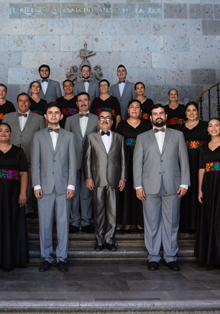The Diplomat
The European Commission made public yesterday its 2022 Rule of Law Report, which includes, for the first time, recommendations to Member States and which, for the case of Spain, calls for the renewal of the General Council of the Judiciary (CGPJ, for its Spanish acronym) “as a matter of priority” and the “immediate” reform of the system of appointment of its members “taking into account European standards”.
The publication of the report coincided with the approval yesterday in the plenary session of the Congress of Deputies of the express reform that lifts the veto so that the CGPJ can appoint two judges to the Tribunal Constitucional (TC). Pedro Sánchez’s government, which hopes that with the appointment of two “progressive” judges the majorities in the High Court will change, pushed through, with the support of its partners, with a single reading and through the urgency procedure, this modification, amending what had been agreed months ago to prevent the CGPJ in office from making appointments.
The government brought the changes to Parliament without first hearing the judges’ body, which had asked Congress to listen to it as the body affected by a reform that concerns it. It is precisely European jurisprudence that those affected must be heard, and Brussels reminded the Spanish government of this at the time.
In addition, the Executive will introduce an amendment today that gives the CGPJ until 13 September to make these two appointments to the TC.
The third annual report on the rule of law “is set against the backdrop of the Russian invasion of Ukraine, which has highlighted the importance of upholding democratic values, human rights and the rule of law,” and comprises “an overview of trends in the EU as a whole and 27 country chapters examining developments in the field in each Member State since July 2021,” the Commission said in a press release. As in previous editions, this report examines developments in four key areas of the rule of law: judicial systems, anti-corruption regulation, media pluralism and freedom, and other issues related to the system of institutional checks and balances.
This year’s report includes, for the first time, specific recommendations made to each Member State, as announced by President Ursula von der Leyen in her 2021 State of the Union Address, in order to “encourage Member States to take forward ongoing or planned reforms and to help them identify areas where improvements are needed,” it added.
In the case of Spain, the document notes that “the fact that the renewal of the Council for the Judiciary is pending since December 2018 remains a concern,” and therefore urges the Spanish authorities to “proceed with the renewal of the Council for the Judiciary as a matter of priority and initiate, immediately after the renewal, a process in view of adapting the appointment of its judges-members, taking into account European standards,” which establish that at least half of the member must be elected by their peers.
In the previous Brussels report, published in the summer of 2021, Brussels also lamented the delays in the renewal of the General Council of the Judiciary, which has remained blocked since December 2018 due to the lack of agreement between the PP and the PSOE. Apart from that, both in the first evaluation report of September 2020 and in the second, of July 2021, the Commission called for a “structural reform” of the election system of the CGPJ so that at least 50% of the members are appointed by the judges themselves, and not by the Parliament (as has been the case so far), “in line with European standards”.
Vera Jourová
In mid-June, the Vice-President and Commissioner for Values and Transparency of the European Commission, Vera Jourová, made a working visit to Madrid to meet with government officials and the Judiciary (including the Minister of Foreign Affairs, José Manuel Albares; the Minister of Justice, Pilar Llop; the Minister of the Presidency, Félix Bolaños; and the Ombudsman, Ángel Gabilondo) in order to prepare, precisely, the Commission’s report published yesterday.
During her visit to Madrid, Jourová warned that Spain must renew “as soon as possible” the CGPJ and recalled that, “according to the rules”, the members of the Council “must be composed of a part of judges elected by judges, who should be the majority”, as opposed to a minority of members who “should be appointed by Parliament, by political parties”. Likewise, during an appearance before the Justice Commission of the Congress, she insisted on the need to establish a system that “manages to survive future elections” and leads to a judiciary “as neutral and independent as possible”, so that “the judiciary is not politicized and does not have that vulnerability”.







